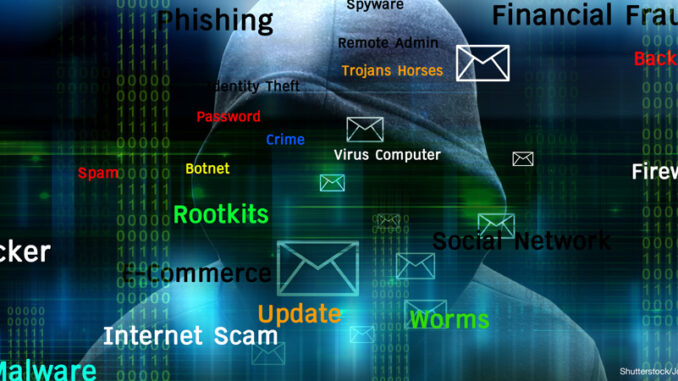
International Cyberattack: What Happened?
Almost 100 countries were affected last week by a worldwide cyberattack. Computer systems in Britain, Russia, the United States, Spain, Japan, the Philippines, Turkey, and Vietnam were targeted, among others.
Earlier this year, a group calling themselves the Shadow Brokers stole ransomware from the U.S. National Security Agency and leaked it online. The program involved in last week’s attacks, ransomware known as WannaCry, encrypts data, then locks out the user unless the user provides a ransom to unlock it: in this case, $300 in Bitcoin. The tool exploits a vulnerability in Microsoft systems, called EternalBlue, which the NSA discovered. Microsoft provided a patch to guard against the vulnerability back in March, but some places, such as hospitals, apparently hadn’t yet updated their systems.
The ransomware was also difficult to detect because the attackers put it into email attachments. Here’s how it works: when users click on the attachment, they inadvertently download the ransomware and infect their systems. The infection then spreads through the vulnerable organization via a “worm,” which is a program that can spread between computers all by itself, even if no one else in the organization clicks on the attachment. This causes large numbers of computers to be infected very quickly.
While companies such as FedEx were affected within the United States, the worst attack was on Britain’s National Health Service. At least 36 of its hospitals and clinics were hit, meaning that hospitals couldn’t access their records, ambulances were impacted, and many doctors couldn’t retrieve their patients’ files. Appointments and surgeries were cancelled, with potentially life-or-death consequences.
Dig Deeper Working with a friend, come up with a list of definitions for the following terms: cyberattack, ransomware, encrypt, Bitcoin, “patch,” and “worm.” Compare your definitions with those that other classmates have written and revise yours as needed until you have the most complete definition possible.
Profits Disappear in a Snap
Snap Inc., the parent company of the messaging app Snapchat, recently went public, meaning that it became publicly traded and owned: in other words, as of March of this year, people can now purchase shares of their stock. This week, however, Snapchat has posted a loss of $2.2 billion, as well as decreasing user growth. Does this spell doom for the company?

Some market experts say yes, warning that Snap’s experience should be a lesson to other venture capitalists and start-up entrepreneurs who might be thinking about going public as well. It’s important to remember that many popular companies are not actually profitable on the market, such as Uber and Pinterest. Snapchat currently has 166 million users, though investors were hoping that they would add even more.
Other experts are more optimistic, citing the example of Facebook, whose stock tanked in 2012 after its first earnings report as a public company. Also, they point out, taking a hit on the public market isn’t necessarily a bad thing; it can help a company improve itself to meet market demands. Facebook, for example, concentrated on spreading into new areas such as mobile advertising. Initially priced at $38 per share, Facebook dropped to $18 at its lowest point. Today, it is worth roughly $150 a share.
Based in Los Angeles, Snap was founded in 2011 by Evan Spiegel and Bobby Murphy. In addition to Snapchat, it is also the parent company of Spectacles and Bitmoji. As of the end of last week, the company’s stock prices began slowly to recover.
What Do You Think? Do you use Snapchat? Do you feel that its current financial downfall means the end of the company, or is it merely a temporary setback? Would you purchase stock in Snap Inc.? Why or why not?
“Twin Peaks,” 25 Years Later
Chances are, even if you aren’t familiar with the television series “Twin Peaks,” your parents will be.
In just a few days, Showtime will begin releasing the 18-episode revival of the early-1990s cult-hit television show, “Twin Peaks”. The new series–“Twin Peaks: the Return”–premiers on Sunday, May 21 and picks up 25 years after the original one, which ended on a cliffhanger.
The original series, which lasted only 30 episodes across two seasons, was essentially a crime drama centered around FBI Agent Dale Cooper, who travels to the small town of Twin Peaks to solve the murder of Laura Palmer, a local high school student. But what gave the show its cult following were its strange characters and surreal dream sequences, more than the plot of the episodes themselves.
Fans are excited to note that David Lynch, who created the original series, co-wrote and directed every episode of the reboot. Several familiar faces will return to the screen, such as series lead Kyle MacLachlan and David Duchovny. In addition, 217 new cast members have been added, including Naomi Watts, Amanda Seyfried, and Michael Cera. The new series will also have the murder of Laura Palmer at its center.
Dig Deeper The original “Twin Peaks” series was based on a real-life murder that took place in 1908 in upstate New York. Use internet resources to find out more about it, then write a short paragraph describing the victim, what happened to her, and who the suspects were. Why do you think this story inspired David Lynch to create a television series about it?
Harry Potter “Prequel” Stolen!
When is a postcard with only eight hundred words written on it worth $32,100? When those words are a short story written by Harry Potter author J.K. Rowling.
The card contains a brief Harry Potter scene that occurred three years before Harry’s birth and centers around his father, James, and his godfather, Sirius Black, both teenagers, as they escape a pair of Muggle police officers on broomsticks. Rowling wrote the prequel scene in 2008 as part of a charity event called “What’s Your Story?” to benefit English PEN, which promotes understanding through literature, and Dyslexia Action. The card sold for $32,100 to Hira Digpal, an investment banker. Last month, the card, along with some jewels, was stolen from a safe in Digpal’s home while he was away on a business trip to Bangkok with Steven Seagal. The West Midlands Police are only now making the story public.
J.K. Rowling sent out a tweet to her ten million Twitter followers last week, asking them to please not buy the card if it is offered to them. Police have asked for anyone with information about the theft to please come forward. Digpal fears that, because the card will be difficult to sell now that the theft has received worldwide attention, the thieves will simply destroy it. It is estimated that the card has more than doubled in value since its purchase in 2008.
